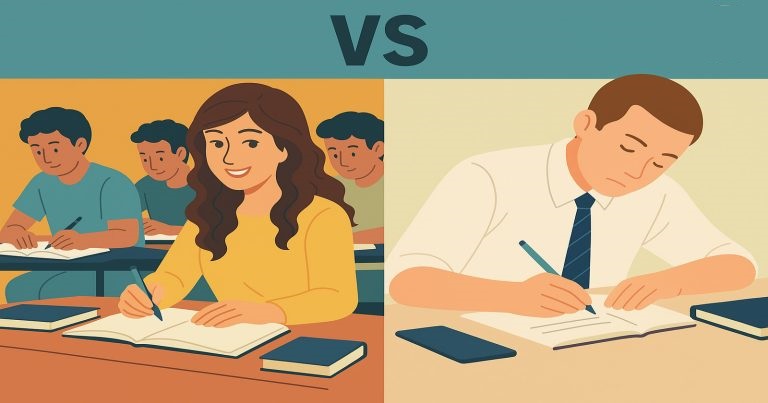Can You Self Study for CFA? | How to Pass CFA Without Classes
Can You Self Study for CFA? | How to Pass CFA Without Classes

Accounting
The CFA (Chartered Financial Analyst) credential is one of the gold standards in the professional world of finance and investing. The CFA Program, with its curriculum on finance, and ethics and investment professional standards, is considered to be one of the most rigorous and comprehensive study regimen for the investment industry there is. Due to its difficult nature and the challenges it presents, there are a lot of potential candidates out there who are considering the question, “Can CFA be done by self study?”
Yes, for sure but you have to be disciplined, manage your time and, when it comes to the resources, choose wisely. In this guide, we’ll examine:
-
The prospect of studying for the CFA exams on your own
-
What it means for you
-
The difficulties that you might experience
-
How to study for it
-
Resources to supplement for the CFA exam
-
And how it may help improve your likelihood of success in your CFA pursuit
What is the CFA Program?
The CFA designation is administered by the CFA Institute to professionals who, typically speaking, work in the investment industry and successfully pass three exams: Level I, Level II, and Level III.
Different skill sets are challenged at each level:
-
Level I: Tests knowledge of investment tools, and the candidate must have a strong sense for the code of ethics.
-
Level II: Focuses on asset valuation and the use of investment tools.
-
Level III: Focuses on investment management and wealth planning.
CFA charterholders can work as portfolio managers, equity research analysts, investment bankers, or financial advisers. The CFA Program is flexible and can be completed with self-study for candidates who want to maintain their professional and economic commitments.
Is it Possible to Prepare for CFA Without a Course?
Yes, it is possible to prepare for and pass the CFA exams without attending a formal class. Many candidates succeed through self-study using official and third-party materials.
Advantages of Preparing for the CFA Exam On Your Own
Flexibility
Set your own schedule and pace based on your strengths and weaknesses.
Cost Savings
Eliminate the high cost of coaching classes. All you need are quality study materials and the exam fees.
Customization
Choose from textbooks, video lectures, question banks, or flashcards—whatever suits you best.
Global Accessibility
You can study from anywhere with a good internet connection.
Challenges of CFA Self Study
Lack of Structure
No tutor means you must create your own study plan.
Motivation and Discipline
Maintaining focus and drive over 6–12 months can be tough without external accountability.
Inability to Grasp Difficult Material
Levels II and III include complex concepts that can be hard to understand without guidance.
Restricted Access to Explanations
No live feedback answers may take longer to find via forums or peers.
Best CFA Self Study Plan
To increase your chances of passing, consider the following resources:
CFA Institute Curriculum
The official guide with end-of-chapter questions and learning outcome statements.
Third-Party Prep Providers
Kaplan Schweser, Wiley Efficient Learning, and IFT offer comprehensive materials and mock exams.
Question Bank and Practice Test
Use platforms like AnalystPrep or FinQuiz to regularly practice.
Flashcards and Summary Sheets
Great for quick reviews and memory retention.
CFA Forums and Online Communities
Engage on AnalystForum or Reddit’s r/CFA for support and tips.
How To Set Up a Study Plan for the CFA Exam
-
Know the Exam Weightings
-
Spend 300+ Hours per Level
-
Design a Weekly Study Schedule
-
Stick to Your Routine
-
Use Active Learning
-
Take Mock Exams
-
Review Weak Areas
How to Manage Time with CFA Self-Study
-
Use a planner or tool like Notion or Excel
-
Apply the Pomodoro Technique
-
Separate reading and practice sessions
-
Use weekends for intensive review
-
Schedule rest and mental health breaks
Success Stories: CFA Charterholders Who Self-Studied
Traits in common:
-
Organized routines
-
Consistent use of CFA Institute and practice materials
-
Thousands of practice questions solved
-
Active participation in online communities
Ways to Stay Motivated During Self Study
-
Set small weekly goals
-
Reward yourself for milestones
-
Use visual trackers
-
Join online forums for encouragement
-
Remind yourself of long-term benefits
When Self Study Isn’t a Good Idea
Consider a formal course if:
-
You struggle with self-discipline
-
You prefer interactive learning
-
Time is limited
-
You need expert guidance
Future Career Prospects After Passing CFA Through Self Study
CFA self-study highlights qualities like:
-
Initiative and independence
-
Time management and discipline
-
Commitment to professional development
-
Analytical thinking
Career paths include:
-
Asset management
-
Investment banking
-
Equity research
-
Corporate finance
Can CFA be self-studied then? Absolutely.
Thousands of people have passed the CFA exams through self-study. Success depends more on effort, planning, and consistency than on classes. With the right resources and commitment, your CFA dream is within reach.
Begin today and don’t stop.
Related Articles
Explore Articles on Finance, Accounting, and Career Growth


